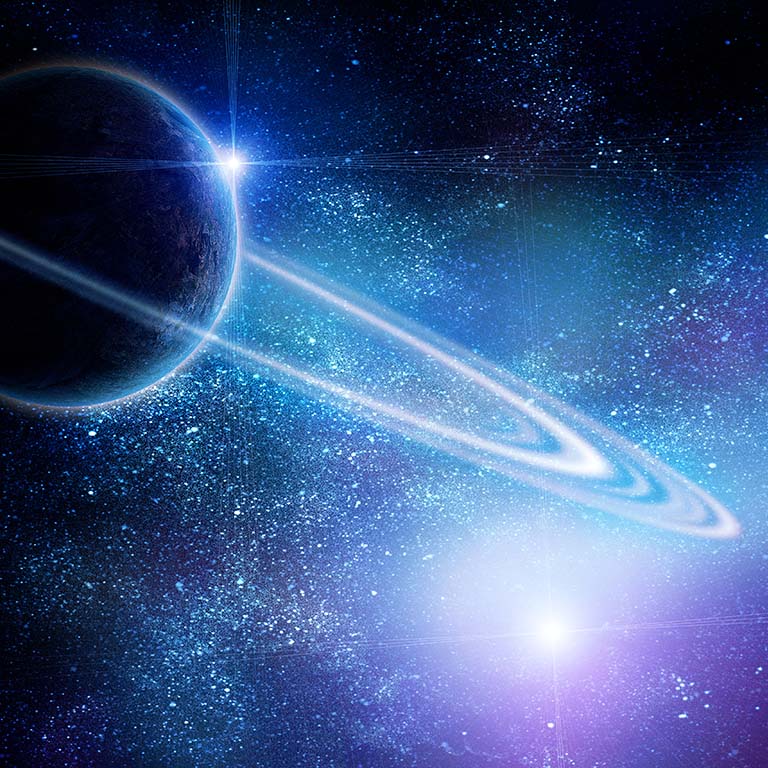For immediate release: November 1, 2021
BLOOMINGTON, Ind. -- Venus, Jupiter, and Saturn will highlight the evening sky during November. The best time to begin viewing them will be as soon as the sky darkens.
Venus will be visible within half an hour after sunset, low and bright in the southwest. The brilliant white planet will cross the broad expanse of the Milky Way during the first two weeks of the month. Venus will be just 3 degrees south of the Lagoon Nebula on Nov. 6 , a fine target for astrophotographers.
Saturn will appear in the constellation Capricornus in the southern sky as evening twilight darkens, setting after 11:30 p.m. local time on Nov. 1 and by 9 p.m. on Nov. 30. The best telescopic views of Saturn will occur within a few hours of sunset. The yellow planet will be less than 20 degrees high, so our atmosphere will distort the view. Its ring system will be tilted 19 degrees to our line of sight. Its largest moon, Titan, will be easy to spot through any telescope. Titan will be north of the planet Nov. 6 and 22 and south of the planet Nov. 14 and 30.
Jupiter will be 16 degrees east of Saturn all month. The best time to view Jupiter will be late twilight, when it will be a third of the way from the horizon to overhead in the southwestern sky. It will set soon after midnight at the beginning of the month and by 11 p.m. at month's end. Its four Galilean moons and the Great Red Spot will be visible through small telescopes.
Mercury will be low in the east-southeastern sky before sunrise at the start of November. Nearby on the right (south) will be the white star Spica. In the second week of the month Mercury will be lost in bright twilight. It will reappear in the evening sky in December.
Mars will be too close to the sun to observe during November. It will return to the morning sky by the end of the month.
Meteor shower
The annual Leonid meteor shower will be active between Nov. 6 and Nov. 30, peaking on the morning of Nov. 17. The moon will be almost full at the peak, so bright moonlight will interfere with the visibility of most meteors. The maximum rate may be 10 meteors per hour. The shower's radiant, the point from which the meteors appear to come, will be in the constellation Leo. The bright star Regulus is part of Leo and can serve as a marker for the radiant. The farther sickle-shaped Leo climbs above the southeastern horizon, the more meteors there will be all over the sky.
The Leonid meteors are caused by streams of dust particles from Comet Swift-Tuttle. They strike Earth's atmosphere at 44 miles per second, the fastest of any meteors, so they produce more fireballs than most showers. More information about meteor showers is available from the American Meteor Society at https://www.amsmeteors.org/meteor-showers/.
Moon phases
The moon will be new on Nov. 4, at first quarter on Nov. 11, full on Nov. 19, and at last quarter on Nov. 27.
Author: Hal Kibbey Email: hkibbey [at] gmail.com


 The College of Arts
The College of Arts